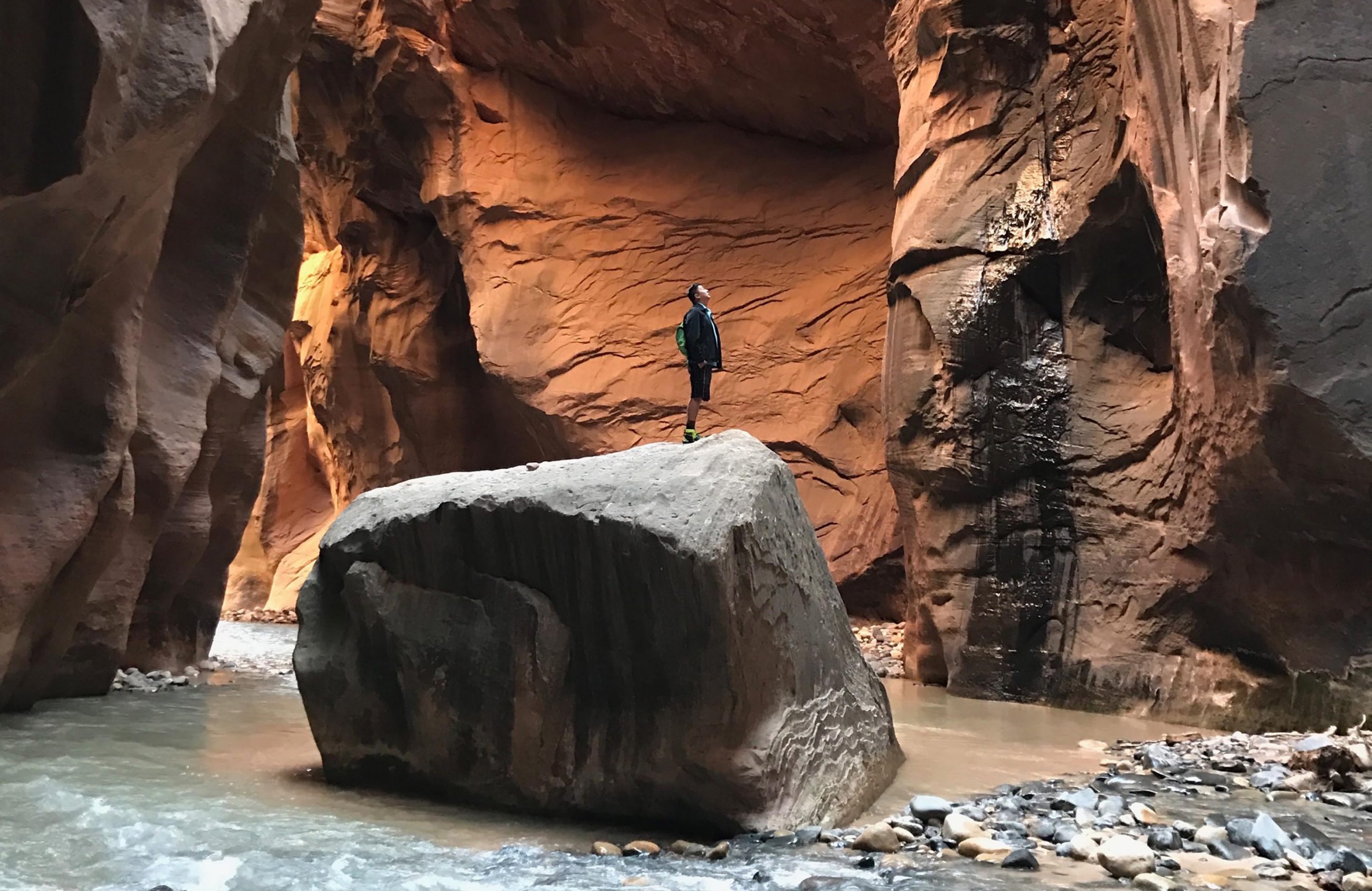The places filmmaker Tom Huang would have liked to shoot his new film, Find Me, make up a laundry list of the West’s stunning locations: the giant redwoods, the Channel Islands, the San Juans, the caves of Lava Beds National Monument.
A story that’s in part a love letter to national parks, Find Me relies on its breathtaking landscapes to give the human story it tells a sense of scale, of both smallness and grandeur.
But the realities of being an independent filmmaker limited Huang to a few locations that fit specific criteria. “It had be within reasonable driving distance from Los Angeles,” he says. “It had to have scenery that we could at least somewhat properly capture from a camera on the ground, it really had to be an easy hike that took us to areas where we’d be relatively alone, and I had to be somewhat familiar with the hike so I could figure out exactly what I wanted to shoot beforehand.”
With a different starting point, this might’ve been limiting, but Huang filmed in Zion, Death Valley and Yosemite, each place offering Joe (played by Huang) another clue in the disappearance of his office friend Amelia (Sara Amini) — and each place requiring Joe to step a little further out of the small life into which he’s locked himself.
Find Me screens this weekend at the DisOrient Film Festival, eight years after the festival showed Huang’s second feature, Why Am I Doing This? An easygoing comedy about the struggles faced by actors of color — stereotypes, limited opportunities, the frequent straight-up racism of studio filmmaking — Why Am I Doing This? is still frustratingly relevant, though Huang is optimistic that necessary, if slow, change in the industry will continue.
“On one hand, I know so many more diverse producers, writers, directors and actors out there, and so many strong diverse filmmakers have established themselves in Hollywood,” Huang says. “But then, at the same time, things have stayed the same. #OscarsSoWhite happened. Then there have been multiple big films where roles that should have been Asian-Americans were cast with Caucasians. And now network TV lineups still continue to have white leading characters, not even coming too close to percentages of the diversity of America.”
If Why Am I Doing This? explicitly tackles questions about race, privilege and stereotypes, Find Me considers these things in part by simply sending its leads into the outdoors. According to a 2017 National Geographic article, 78 percent of National Park visitors are white.
The people Joe meets in the film, by and large, are not. They welcome him; they give him advice; they invite him camping. They help him make his own world bigger by showing him their own beloved parts of it.
Find Me is an indie film, with the limitations and beauty-born-of-necessity that a small budget and small crew entails. Sometimes the pacing is a little off; sometimes the musical choices could be stronger.
But as the story progresses and Joe gains confidence in his abilities to both pick the right footwear for a hike and say no to his ex-wife, Huang’s narrative grows into a surprisingly affecting story about letting people make their own choices — especially when those choices aren’t ones you can agree with.
If occasionally the women Joe meets are a little too quick to help him, that’s balanced out by Amelia’s part of the story, which the final scenes make clear was always her own narrative — one she devised, decided on and owned.
There’s a subtlety to the way Huang gives the film to Amelia gradually and gently: You think it’s a movie about a hapless dude finding himself with the help of a trio of striking women, but then, suddenly, you find something else.
Scrappy, sweet, and sincere, Find Me may surprise you. It’ll almost definitely make you want to go outside.
The 13th annual Disorient Asian American Film Festival runs April 19-22 at Bijou Art Cinemas, Broadway Metro and the University of Oregon; for more info, a schedule of films and events, and tickets, visit hosteugene.com/disorient/ or call 541-954-1798.
